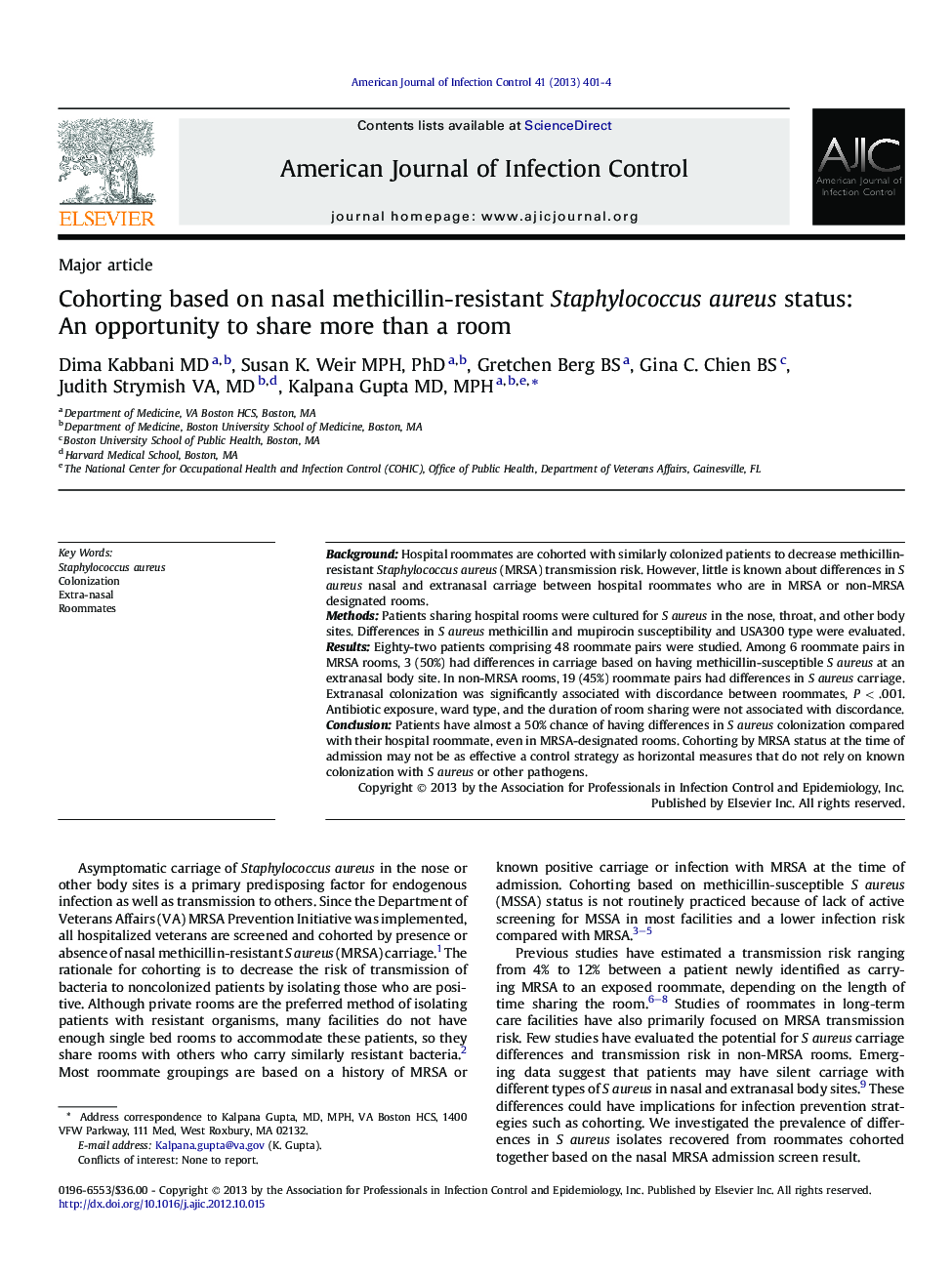| کد مقاله | کد نشریه | سال انتشار | مقاله انگلیسی | نسخه تمام متن |
|---|---|---|---|---|
| 2637319 | 1563500 | 2013 | 4 صفحه PDF | دانلود رایگان |

BackgroundHospital roommates are cohorted with similarly colonized patients to decrease methicillin-resistant Staphylococcus aureus (MRSA) transmission risk. However, little is known about differences in S aureus nasal and extranasal carriage between hospital roommates who are in MRSA or non-MRSA designated rooms.MethodsPatients sharing hospital rooms were cultured for S aureus in the nose, throat, and other body sites. Differences in S aureus methicillin and mupirocin susceptibility and USA300 type were evaluated.ResultsEighty-two patients comprising 48 roommate pairs were studied. Among 6 roommate pairs in MRSA rooms, 3 (50%) had differences in carriage based on having methicillin-susceptible S aureus at an extranasal body site. In non-MRSA rooms, 19 (45%) roommate pairs had differences in S aureus carriage. Extranasal colonization was significantly associated with discordance between roommates, P < .001. Antibiotic exposure, ward type, and the duration of room sharing were not associated with discordance.ConclusionPatients have almost a 50% chance of having differences in S aureus colonization compared with their hospital roommate, even in MRSA-designated rooms. Cohorting by MRSA status at the time of admission may not be as effective a control strategy as horizontal measures that do not rely on known colonization with S aureus or other pathogens.
Journal: American Journal of Infection Control - Volume 41, Issue 5, May 2013, Pages 401–404